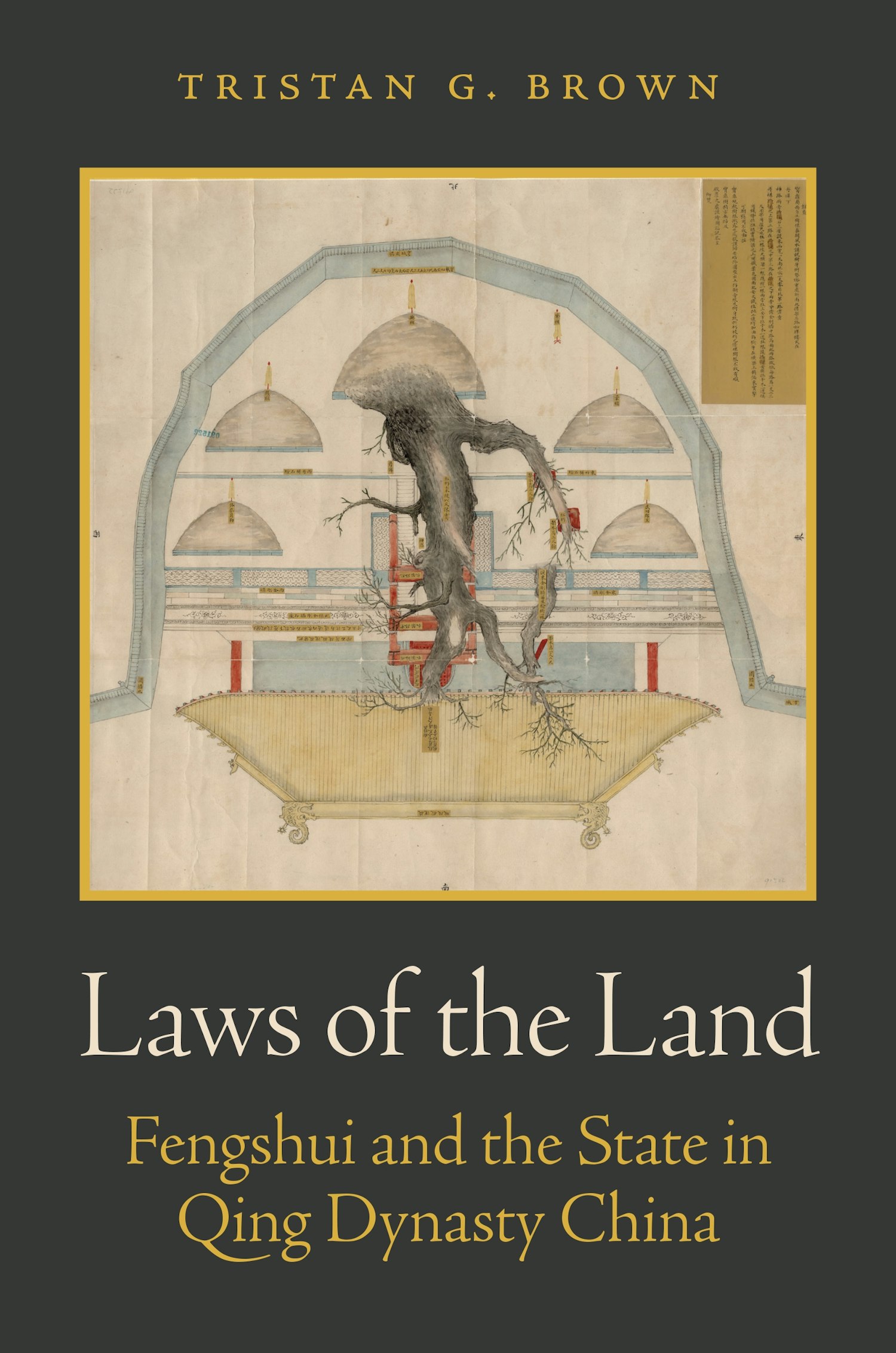Princeton University Press has published Laws of the Land: Fengshui and the State in Qing Dynasty China (2023), by Tristan G. Brown (Massachusetts Institute of Technology). A description from the praise:Today the term fengshui, which literally means “wind and...
Princeton University Press has published Laws of the Land: Fengshui and the State in Qing Dynasty China (2023), by Tristan G. Brown (Massachusetts Institute of Technology). A description from the praise:
 Today the term fengshui, which literally means “wind and water,” is
recognized around the world. Yet few know exactly what it means, let
alone its fascinating history. In Laws of the Land, Tristan Brown
tells the story of the important roles—especially legal ones—played by
fengshui in Chinese society during China’s last imperial dynasty, the
Manchu Qing (1644–1912).
Today the term fengshui, which literally means “wind and water,” is
recognized around the world. Yet few know exactly what it means, let
alone its fascinating history. In Laws of the Land, Tristan Brown
tells the story of the important roles—especially legal ones—played by
fengshui in Chinese society during China’s last imperial dynasty, the
Manchu Qing (1644–1912).
Employing archives from Mainland China
and Taiwan that have only recently become available, this is the first
book to document fengshui’s invocations in Chinese law during the Qing
dynasty. Facing a growing population, dwindling natural resources, and
an overburdened rural government, judicial administrators across China
grappled with disputes and petitions about fengshui in their efforts to
sustain forestry, farming, mining, and city planning. Laws of the Land
offers a radically new interpretation of these legal arrangements: they
worked. An intelligent, considered, and sustained engagement with
fengshui on the ground helped the imperial state keep the peace and
maintain its legitimacy, especially during the increasingly turbulent
decades of the nineteenth century. As the century came to an end,
contentious debates over industrialization swept across the bureaucracy,
with fengshui invoked by officials and scholars opposed to the
establishment of railways, telegraphs, and foreign-owned mines.
Demonstrating
that the only way to understand those debates and their profound stakes
is to grasp fengshui’s longstanding roles in Chinese public life, Laws of the Land rethinks key issues in the history of Chinese law, politics, science, religion, and economics.
A sample of advance praise:
“Brown offers an impressive, fine-combed reading of sources that paint a vivid picture of fengshui’s signature importance within local life and Qing law. A terrific contribution to Chinese history.”—Jonathan Schlesinger
More information is available here. An interview with the author is available here, at New Books Network.
-- Karen Tani
















